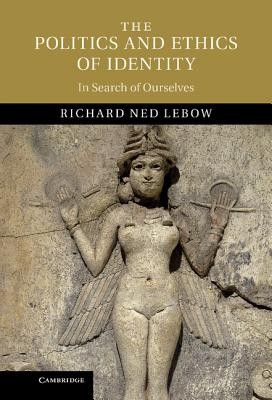
- We will send in 10–14 business days.
- Author: Richard Ned Lebow
- Publisher: Cambridge University Press
- ISBN-10: 1107027659
- ISBN-13: 9781107027657
- Format: 15.2 x 23.1 x 3.3 cm, kieti viršeliai
- Language: English
- SAVE -10% with code: EXTRA
Reviews
Description
We are multiple, fragmented, and changing selves who, nevertheless, believe we have unique and consistent identities. What accounts for this illusion? Why has the problem of identity become so central in post-war scholarship, fiction, and the media? Following Hegel, Richard Ned Lebow contends that the defining psychological feature of modernity is the tension between our reflexive and social selves. To address this problem Westerners have developed four generic strategies of identity construction that are associated with four distinct political orientations. Lebow develops his arguments through comparative analysis of ancient and modern literary, philosophical, religious, and musical texts. He asks how we might come to terms with the fragmented and illusionary nature of our identities and explores some political and ethical implications of doing so.
EXTRA 10 % discount with code: EXTRA
The promotion ends in 21d.20:01:41
The discount code is valid when purchasing from 10 €. Discounts do not stack.
- Author: Richard Ned Lebow
- Publisher: Cambridge University Press
- ISBN-10: 1107027659
- ISBN-13: 9781107027657
- Format: 15.2 x 23.1 x 3.3 cm, kieti viršeliai
- Language: English English
We are multiple, fragmented, and changing selves who, nevertheless, believe we have unique and consistent identities. What accounts for this illusion? Why has the problem of identity become so central in post-war scholarship, fiction, and the media? Following Hegel, Richard Ned Lebow contends that the defining psychological feature of modernity is the tension between our reflexive and social selves. To address this problem Westerners have developed four generic strategies of identity construction that are associated with four distinct political orientations. Lebow develops his arguments through comparative analysis of ancient and modern literary, philosophical, religious, and musical texts. He asks how we might come to terms with the fragmented and illusionary nature of our identities and explores some political and ethical implications of doing so.


Reviews